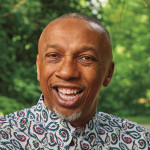HIV-negative ally Khadijah Abdullah, a Muslim woman, advocate and entrepreneur, will help lead the inaugural Faith HIV/AIDS Awareness Day (FHAAD) on August 27.
To mark the occasion, a daylong event in Washington, DC, will gather advocates from the Muslim, Christian, Bahá’í, Buddhist, Hindu, Sikh and Jewish faiths. They will walk from the White House to Freedom Plaza, reciting prayers and standing in solidarity with people living with HIV/AIDS across the country.
“Muslims living with HIV, Christians living with HIV, Jewish people living with HIV—they exist and need to be recognized,” comments Abdullah, who has worked during the past year to organize this event in her home city.
In anticipation, over Memorial Day weekend, Abdullah and her nonprofit organization RAHMA (Reaching All HIV+ Muslims in America) helped train ambassadors from more than 15 cities to hold similar local events.
Abdullah believes that faith communities can play a major role in ending the epidemic—but only if they get educated, shed their judgment and set aside their misconceptions.
“Some people don’t want to learn,” says Abdullah. These include faith leaders preaching hate and religious people simply refusing to speak out about the topic. “But you have to force them to learn. We’re all in this together.”
Abdullah founded RAHMA (the word means “mercy” in Arabic) in 2012. It offers support to HIV-positive Muslims, works to reduce stigma in the community and hosts HIV/AIDS trainings at Islamic religious services held every Friday at mosques. RAHMA and its events are open to everyone, regardless of religious beliefs, race, ethnicity, gender expression, age, national origin, marital status or sexual orientation. Abdullah is also the CEO of the childcare-focused start-up Muslim Nannies, which she operates in tandem with RAHMA.
She began working with HIV-positive people in college after meeting a Muslim man who had AIDS. He confided to her that he did not feel welcome in his community.
“Growing up, in my faith, we didn’t talk about HIV and AIDS or STIs [sexually transmitted infections] or even sexual health in the mosque, so I was completely ignorant about all of these things,” Abdullah recalls. “But after meeting him, I was like, ‘Wow, this is not right.’”
In addition to HIV, RAHMA has expanded its focus to include other health concerns, such as female genital mutilation/cutting, gender-based violence, STIs and harm reduction. The organization also welcomes non-Muslims.
“No one should feel like they don’t belong—period,” Abdullah says. To learn more about FHAAD, visit FaithAIDSDay.com.







3 Comments
3 Comments